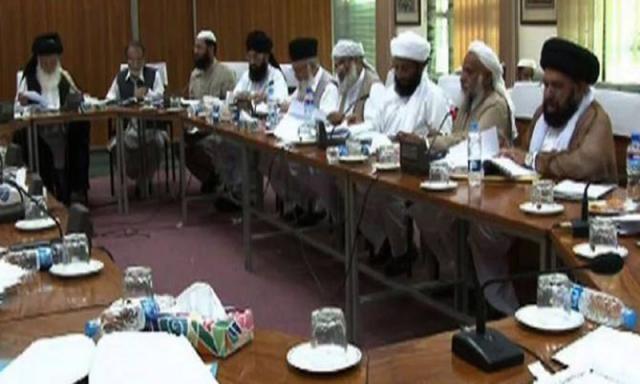Pakistani laws prohibiting underage marriage un-Islamic: CII
ISLAMABAD: The Council of Islamic Ideology (CII) concluded its 191th meeting, here Tuesday with the ruling that the laws related to minimum age of marriage were un-Islamic and that children of any age could get married if they attain puberty.

At the conclusion of two day meeting, Chairman CII Maulana Muhammad Khan Sheerani noted that the laws related to marriage too were unfair and there cannot be any age of marriage.
However, he explained that there were two segments of marriage – nikah and ruksati, while nikah could be performed at any age.
“Even the minors can have nikah but that has to be executed by the guardians,” chairman CII said adding, “But ruksti could be executed only after attaining the age of puberty.”
He said that the age of puberty varies from individuals to individuals and it was the responsibility of guardians to have ruksati soon the child attains the age of puberty.
“The laws limiting the age for both the segments of marriage are unIslamic and needed to be rectified,” he added.
Officials told Dawn that the council members discussed various historic references related to marriage and concluded that each girl has different age of reaching puberty.
The officials were asked if the international conventions signed by Pakistan related to child marriage would be violated after this ruling by CII.
Responding to the query the official said that the international conventions cannot be in contradiction to the constitution of the country or Islam and if they were, those particular clauses would not apply on Pakistan.
The CII meeting also suggested to the government that ‘nikah’ registrars should have a certain level of qualification.
“Not everyone should be allowed to become a Nikah Registrar,” Maulana Sheerani demanded the government, “While the fee for registration of Nikahnama should also be abolished.”
The CII had on earlier day suggested the government to change Muslim marriage laws as it required Muslim male to seek permission from the previous wife or wives for another marriage.
Meanwhile, the Pakistan Peoples Party’s (PPP) human rights cell has expressed concern over the CII rulings.
“Why is Council concerned with men’s four marriages and why have they done nothing to ensure that women get their property as enshrined in Islamic Law? Or why have they failed to stop practices such as vani, swara and karo kari? Or stop rape, and acid crimes against women?” asked Dr Nafisa Shah, coordinator PPP’s human rights cell.
“Unfortunately Islam has been misinterpreted over a period of time by a mindset and a particular school of thought. Islam and modernism are compatible provided progressive scholars interpret the religion,” she added.
The PPP human rights cell has called upon the government to include progressive Islamic scholars in the council so that women’s rights and the rights of all are protected.


